Excerpted from Self Knowledge, T.W. Shannon, 1913.
… no pen can portray, no rhetoric can describe and no imagination can conceive her fearful dreams, her fevered memories and her agonies of remorse.
Why most girls go wrong. — In my talk on a young woman’s ethics, I endeavored to give you such information and advice, regarding your association with young men, as would safeguard your character. Few girls have been as well informed by their mothers in these matters as they should have been. As a result of ignorance, many girls, even out of our best homes, annually fall. Were all girls taught by their mothers along this important line and could they see the tragic consequence of going wrong, it is evident that very few young women would ever go astray.
If motherhood does not expose her sin. — If this betrayal does not result in her becoming a mother, and her betrayer does not expose her sin to the public, her problems will be much more easily solved. But, even if she is so fortunate as to escape motherhood and her betrayer does not boast to others of what he has done, yet no pen can portray, no rhetoric can describe and no imagination can conceive her fearful dreams, her fevered memories and her agonies of remorse.
If motherhood does expose her sin. — The gravest problems arise where the girl is to become a mother. To shield herself and to save her family from disgrace, her first thought will be to use some means to rid herself of the unborn life. In this awful hour of conscious guilt, mental bewilderment and soul agony the girl would gladly welcome death in any form rather than face the inevitable exposure that awaits her. God only knows how many girls commit suicide and how many mysterious deaths might be explained by this cause. Where they succeed in destroying the unwelcome life, physical health is often wrecked. But suppose that death or ill health does not follow, what must be the effects on the mind and soul that follow this cold-blooded act of willful prenatal murder.
Homes for the unfortunate girls. — Her parents, brothers and sisters have social rights that must be respected. For her to remain at home during her sickness would attract unnecessary attention to the event and subject innocent members of the family to needless humiliation due to the ridicule and scorn of the neighbors. There are homes in all our large cities for the unfortunate girl where she can spend a few months before and after the birth of her child. Should the child be still-born, or die soon after birth, by going away from home, she and her family may be shielded from the curiosity and scorn of the friends and neighbors.
She should be true to her child. — New problems arise if her child lives. Most young illegitimate mothers give their children over to some “Home Finders Institution.” Circumstances may sometimes justify, or seem to justify, this disposition of the child. The child is bone of her bone, blood of her blood, life of her life. She is largely responsible for bringing the innocent, helpless child into the world; she should not add to her personal sin and to her sin against the child by deserting and leaving it to the cold mercies of a selfish, unsympathetic world. If her parents sympathize with and forgive her, they will most likely have her return to their home with the child. The women of the community will circulate the scandal on her return until they wear all the reports thread-bare. But the girl must make up her mind to face this, live an ideal life and endure the sneers until she lives it down. This will be a severe trial, but she will have a chance to show the world what a beautiful life a wronged woman can live when given a half chance.
If driven from home. — If her parents drive her from home, her experience becomes the bitterest known to a human being. But she should not despair. He who said to the woman, “caught in the act,” “go and sin no more” is ever ready to help bear her burdens and speak to her the same words of forgiveness and cheer. In all large cities there are “Homes for the Friendless,” where friendless girls may go without charge until after they recover from confinement.
“If I become a Christian, I want to unite with the church. If I give the name I am now wearing to be placed on the church register, I shall be living and practicing a lie. If I give my maiden name, I shall expose my mistake, bring disgrace upon my family, brand my child with illegitimacy, and lose my position as a teacher, whereby I make my living, support my child and am able to live a pure life. What must I do?”
The person to whom she related this story was greatly perplexed for an answer. Though a godly man, a minister, the double standard of morals had so biased his thinking that he was not prepared to give her a fair and just answer.
Hoping that additional light might help him out of his dilemma, he asked her to tell him what led to her fall.
She replied, “After the death of father and brother, our bread winners and protectors, mother, sisters and I made our living by keeping student boarders from a church college. One of our boarders, a young law student, made love to me, won my affections and complete confidence. We were engaged to be married on the day of his graduation. Only a few months before this event he asked for privileges that belonged only to the married. I was perfectly shocked and dazed. I resented the request as an insult. He insisted that he meant no offense, that he considered that we loved and trusted each other as much as we possibly could after we were married. He insisted that we were as truly one as if we were married, that the mere legal phase was only a custom and had no moral significance and that it was very common for the engaged to enjoy this privilege. After many days of entreaty, promise of marriage oft repeated, and loving caresses, I made the profound mistake of my life.
“One day a doubt took possession of me. I grew desperate in my determination. On his return home, I faced him and demanded immediate marriage, refusing to live with him longer unless he took immediate steps to correct the mistakes of the past. I pleaded for the rights of his child, for my rights. Once more he renewed his fidelity and promised to arrange immediately his business so we could make the trip in a week or ten days. Meanwhile he secretly dissolved partnership, disposed of almost all his property, took a midnight train, without a good-by kiss, and left for parts unknown.
“I sold off our furniture, wrote mother that husband and I had disagreed and had separated, that I would send her my little girl and would help support the family by teaching.”
The minister’s mistake. — Then she said to the minister, “I never meant to be a sinner, I am living a pure life. What must I do?” The minister advised her to confess to the church what she had done and said that he would plead with the church to forgive and stand by her. If this woman had followed the minister’s advice she would have lost her position as a teacher, she would have lost her social standing, she would not have been given a sympathetic and loving welcome into the church, she would have brought disgrace upon her home and placed society’s stigma of illegitimacy upon her child. The minister would not have demanded a similar confession from the man who was far more guilty than she. That conscientious minister would insist upon restitution’s being made for stolen property, as a condition of divine forgiveness, but a libertine may pluck the lily of purity from a maiden’s brow, and rob his child of sacred birth, allow mother and child to die in poverty, their grocer’s and doctor’s bills to go unpaid, the public to bury them in the potter’s field, while he revels in luxury and enjoys social distinction, and no restitution is required in his case, as a condition of divine favor, membership in the church, or a triumphant entrance into endless bliss.
Blinded by the double standard. — She could not meet the minister’s condition. He was conscientious and could not make what to him would have been a compromise with sin. Not fully appreciating that moral law is higher than civil law; that what is sometimes civilly wrong is morally right; that centuries of submission to the double standard of morals has so biased the public mind that even the best of society are incapable of always giving the wronged girl a square deal; she at last postponed her decision for the Christ. The meeting closed, later the school closed and then she left the city and her whereabouts became unknown to the minister.
Was she scarlet or was she white. — You will observe that this girl is not to be classed in character with the girls who purposely give themselves to a life of shame. This girl never meant to be bad. She over-loved and over-trusted the man to whom she was engaged. She had no father or brother to advise and protect her. She was not informed as to the seductive wiles of the libertine. Hers was a profound mistake.
Suppose that her chum across the street had made the same mistake and her lover had kept his promise of marriage, would her chum’s sin have been less than hers? Certainly not. Of the two women and their children, the first deserves more sympathy, mercy and love.
She and her child had a moral right to his name. — When the world’s purity movement shall have relegated the double standard of morals back to the dark ages of savagery where it originated, and shall have established in the hearts of men the Christ standard, the “single standard,” a “white life for two,” then civil law will be made to harmonize with the moral law and the wronged girl and her child will be given the legal right to the name of the man who ought to be to them a husband and father, with all the legal rights of support and a division of his property at his death.
Her deceiver was under absolute moral obligation to give them his legal name. Then she and her child had an absolute moral right to wear his name.
Is it ever right for a wronged woman to choose the title Mrs.? — If to avoid the scorn, sneers and jeers of an unChrist-like social condition, and as an aid in securing honorable employment while she supports her child and struggles to live a pure life, who would dare blame a wronged girl, if she would choose to call herself “Mrs.,” and let widowhood be inferred? If a wronged girl becomes a mother, if she is turned away from her home, if she desires to be a true mother to her own child, she will find it impossible to find honorable employment as a single girl with a baby and to avoid immoral solicitations from vicious men, unless she assumes the title of “Mrs.”
When she will find it necessary to tell her child. — When her child is old enough to understand and appreciate her misfortune, she will find it necessary to make an explanation to her child. This will be a very difficult thing to do. But if she has been a true mother, she will not lose the confidence and love of her child.
Tell her story to her lover. — If an opportunity of marriage comes, she should tell her story to her lover. If he is noble, and his love for her is genuine, and her character is all he believes it to be, he will likely forgive and marry her. If her mistake is publicly known, or she is a mother, her lover will very likely find it out, and it will be easier to forgive before marriage than after.
When not necessary to confess the wrong. — If her sin has not been made public and she has not been a mother, I would not advise that she make confession to her lover. Men who have been even more guilty do not confess their sins. She will, all her life, shed many bitter tears and suffer many heart agonies because of her mistake. These sad experiences may make her all the more patient, kind and loving.
I have told you these sad, sad tragedies that come to many girls who over-love and over-trust, that you may more perfectly sympathize with and help the erring ones and be safeguarded against the wiles of men.







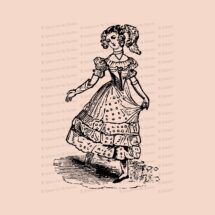
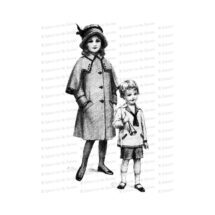



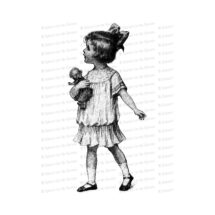
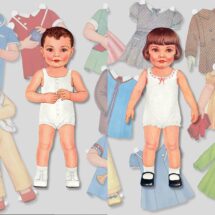
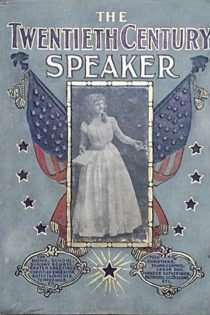
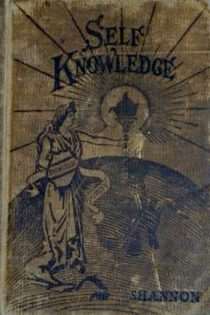
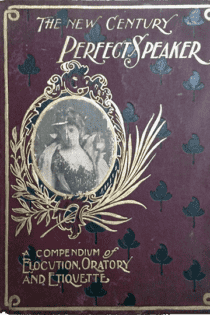
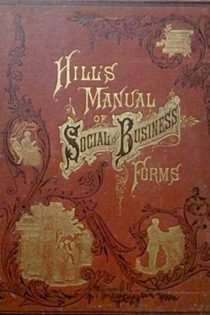
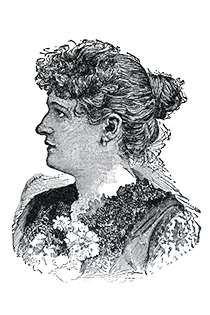
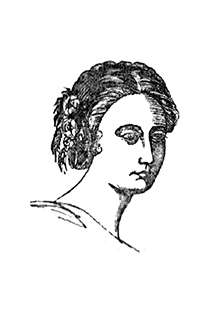

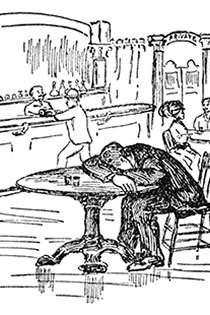
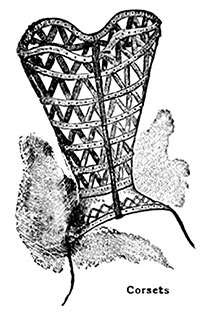

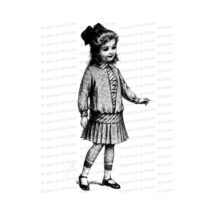





You must be logged in to post a comment.